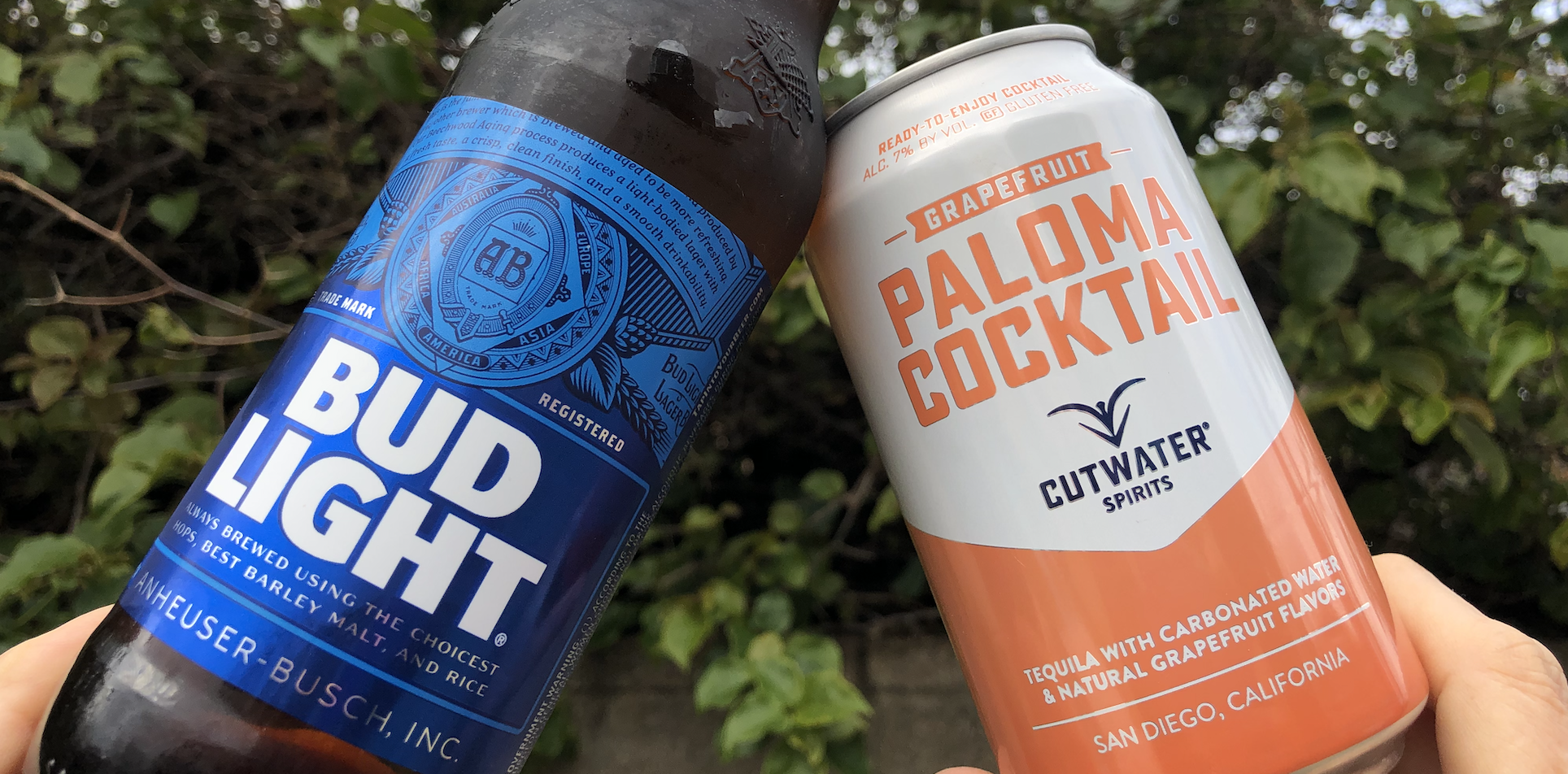Many people thought that it was just a matter of time before Anheuser-Busch (AB InBev) sunk its teeth into the San Diego craft beer scene but in a slight pivot this week, they announced that they acquired Cutwater Spirits, the San Diego-born craft distillery. Many people in the craft beer scene were not surprised by this purchase because the founders of Cutwater were also the founders that sold Ballast Point to Constellation for the monumental price tag of $1 Billion in 2015. They obviously know how to grow a brand (quickly, in Cutwater’s case, since it’s only been around since 2017) to a level that it’s highly desirable to mega-corporations and for that, they deserve kudos since that is no small feat.
The disappointing part of the situation is that they sold to AB InBev, one of the worst big beer companies when it comes to how they behave and compete in the craft beer sphere. In fact, if it was any company other than AB InBev there would likely be no discussion at all because there is nothing wrong with people make money by working hard on their dream, something that most of us in craft beer are trying to do too. But with beer sales not in the same insane growth pattern they once were and their core brand Budweiser suffering as much as it is, it makes sense that AB would make their moves on spirits and canned cocktails, one of the faster-growing segments in the alcohol industry.
While we certainly don’t fault the Cutwater owners for selling the company, many of us have to find other delicious canned cocktails to love because we just can’t stomach putting money into AB InBev’s pockets when they continue to work against the craft beer community. Just to go over a few of AB InBev’s moves over the past few years, here’s an excerpt that explains it pretty well from one of our recent blogs:
The reason why many craft beer insiders and consumers are bummed when their favorite craft brewery is sold to AB InBev is that they are actively trying to squash the ability for smaller breweries to compete fairly in the marketplace.
They put big money into lobbying for legislation that favors big beer (AB InBev spent nearly $8 million lobbying last year while the Brewers Association spent $294,000 on lobbying in the same period). They take part in pay-to-play tactics with stores, bars, and restaurants earning tap handles and cooler space (and have been fined multiple times for such practices). They buy up wholesalers and distributors and in some regions, they are the only distributors for craft beer. On top of that, they incentivize these distributors to heavily sell their portfolio which they were fined for in 2017 citing anti-competitive practices.
Furthermore, AB InBev has its hands in every part of the beer industry. From owning RateBeer.com, October, and Good Beer Hunting, to owning both Midwest Supply and Northern Brewer, the two biggest homebrew supply companies in the country, to the countless alcohol distributors they own, to all the craft breweries that they have purchased over the last few years. AB InBev is invested in nearly every segment of this industry.
Things’ll Never Change
Another concern when a big buy-out happens is whether or not the employees that work there now get to keep their jobs. If history is any sort of predictor, when big beer comes in and buys up a brewery, whether they would admit it or not at the announcement of the acquisition, changes are often inevitable.
This past October, Lagunitas laid off 12% of their workforce after being bought out fully by Heineken. In August, Constellation laid off dozens of craft beer sales employees from Ballast Point, Funky Buddha, and Four Corners Brewing and AB InBev cut down its High End national sales team that deals with craft beer (i.e. the sales reps from the craft breweries they have bought) by 360 people in September of 2017. It’s rare that a company remains the same after it’s bought by big beer, so we will have to see what shakes out in those changes that will take place. Hopefully, they keep their talented staff that has helped grow the brand to the level that it was desirable to AB.
San Diego Comes Through
In the end, nothing is likely to stop the expansion of AB InBev into new markets or their continued growth into all segments of the beer market. Cutwater is just a drop in the bucket when their parent company AB InBev reported revenue of $54.9 billion from September of 2017 to September of 2018. To put that in perspective, that means that they make approximately $150 million per day. While many people won’t care that Anheuser Busch now owns Cutwater, there is a small segment of consumers that are interested in company ownership. For these people, there is a great group of craft distilleries that can fill the void. Check out some of these spots next time you have a hankering for craft spirits:
Oceanside Distillers
Please shoot me an email at [email protected] if I’ve missed some San Diego craft distilleries on this list.

